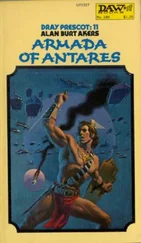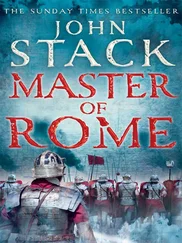Robert turned his back on the flagship and went down to the quarterdeck. The summer heat was rising and his shirt was drenched with sweat under his jerkin and doublet. His stomach ached. He ignored the protest and with annoyance he scratched a flea bite on the back of his arm. A latent anger, caused by weeks of tension, suddenly rose within him. Where were the cursed Spanish? Had they sailed from Lisbon? Were they now off Cape Finisterre, or Biscay, or Ushant? Perhaps their plans had changed. Perhaps the reports that had reached Plymouth were false and the Spanish were sailing to Ireland to incite rebellion there.
He looked to the heights above the protective headlands of the harbour. Each one was capped with primed signal fires. Similar beacons had been placed along the length of the south coast. If the Armada was sighted they would be lit and the news would speed to London and beyond to the entire kingdom. But what then? Robert had confidence in the Retribution and her crew. His ship was a breed apart, faster and more nimble than any craft the Spanish possessed. But many of the enemy ships were behemoths, built for the rigors of the mid-Atlantic. The Retribution and her sister ships would be like terriers nipping at the heels of wolfhounds, and should any English ship fall within grappling range they would be quickly overwhelmed.
Robert tried to suppress his doubts, knowing they were caused by the weeks of anxious waiting and the never ending supply problems. The future was not yet written, it was in the hands of God. Robert strived to impose his personal convictions upon the battle ahead. For his whole adult life he had sought ways to regain his family name and honour. He had lost hope many times, but through prayer and faith he had always recovered his way. The battle ahead was no different. The victory was not assured. All they had was hope, but Robert had to believe that with God’s help they would prevail.
‘All hands!’ Evardo roared, a wave of seawater taking the last of his words. ‘All hands on deck!’
The Santa Clara shuddered beneath him as she tore over the crest of a wave, her storm tops’ls bearing her onward. Evardo spat the seawater from his mouth and looked to the four points of his ship. The storm was on all sides, enraging the sea with a bitter wind that whipped the surface into a hellish trial for the Armada. Evardo could see distant sails behind him to the south-west, running broad reach before the wind. The stern of the Santa Clara shifted a point to starboard, the wind clawing at her towering castles.
‘Steady your helm,’ Evardo shouted instinctively, his command echoed by the sailing captain, Mendez.
A sailor ran up to the quarterdeck. ‘The level of water in the main hold has risen to three feet, Comandante .’
Evardo pushed past him and staggered to the forward rail. A wave crashed over the bulwark, swamping the main deck.
‘More men to the pumps,’ he roared.
Through the rain soaked air he could see Nathaniel Young standing with his arm locked around the distant foremast. The Englishman had been on deck for every waking hour since the Armada had left Lisbon, and had continued his vigil throughout the storm. Such action spoke of some inner fire. In a quiet corner of his mind, Evardo wondered what specifically could fuel such grim determination.
‘Land ho,’ a voice called and Evardo followed the signal of the masthead lookout.
‘The Isles of Scilly,’ Mendez shouted, his hand cupped over his mouth.
Evardo wiped the spray from his eyes to focus on the low lying islands. The south-west tip of England, hidden by the storm, was some thirty miles east-north-east from the archipelago. They were so close, but as Evardo scanned the sea around the Santa Clara he could see they were all but alone. The storm had scattered the Armada like chaff. He could not go on and worse still his ship might be spotted by the enemy, alerting them to the relative position of the Armada.
‘Two points to port,’ he shouted and Mendez ordered more men to the rigging.
The Santa Clara turned her bow away from the Isles of Scilly towards southern Ireland. Evardo leaned into the turn and lifted his face heavenward to pray for a wind that would allow him to bring his ship back to La Coruña to rendezvous with the flagship, and for a change in the ill-fortune they had already suffered since leaving Lisbon.
The journey up the coast of Portugal had been tortuously slow. From the outset the Armada had been plagued by contrary winds, forcing them to continually tack to stay on course. The Santa Clara , and the galleons like her, had taken to the task with ease, but the pace of the fleet was dictated by the slowest moving vessels. The twenty-three massive merchant hulks, the auxiliary ships of the fleet, were unwieldy leviathans with abysmal sailing qualities.
During the two weeks it had taken them to sight Cape Finisterre, Evardo had been given the chance to study the ships of the rest of the fleet as they sailed about him. Some of the largest of these were the eleven ships of the Levant squadron. Designed for grain and other bulk transport in the Mediterranean, many of them were near and over 1,000 tons. They had been commandeered over the previous year and were now heavily armed and crammed with soldiers. With such overwhelming manpower they would have an incredible advantage in close-quarter fighting and despite their mainly Italian crew, whom Evardo considered inferior to Spanish sailors, he was confident that no English ship would be able to survive a boarding attack from a Levanter.
The squadron of Portugal contained many of the foremost battleships of the Armada and was headed by the San Martin , Medina Sidonia’s flagship. Some of these vessels had been acquired by Spain when Portugal was annexed but the others had been built on the King’s orders to protect Portuguese trading routes. All were heavily armed, with the 1,000 ton San Martin alone boasting some 48 guns, the heaviest capable of firing a 30 pound iron shot.
From the Basque ports of Spain, the Armada had requisitioned twenty large and sturdy trading ships which made up the squadrons of Guipúzcoa and Biscay. As with the Levanters, the armament of each ship had been considerably enhanced and soldiers now occupied every available space on board, in many cases tripling the size of the ships’ original crew.
The overall deployment of the fleet had been minutely planned, with each ship assigned a place in the designated battle formations. The hulks and support ships were to remain in strict formation, surrounded by the heavily armed merchantmen. Any active defence against the enemy would be carried out by the warships of the fleet, the Santa Clara amongst them. However, she would not sail with her sister ships of the squadron of Castile. The squadrons were for administrative purposes only. The warships were to act as independent fighters, holding position in the fleet when they could, but at all times capable of detaching to defend themselves or any vessel under attack.
Such flexibility would allow for maximum protection of the transport ships carrying vital supplies to Parma’s invasion force and King Philip, though Medina Sidonia, had consistently impressed upon all commanders that the aim of the Armada was not to attack and defeat the English fleet, but rather to hold them at bay and defend the crossing of the Army of Flanders. Only after Parma had landed on the English coast would the Armada be free to engage.
Only one squadron was expected to fight as a unit, one elite group under Don Hugo de Moncada – the squadron of Neapolitan galleasses. These four hybrid ships had a galley-like hull and galleon-like rigging, combining oar and sail to create a deadly predator that reigned supreme in coastal waters. Heavily armed, they were painted blood red. Their sails depicted a bloody sword and the rowers had each been issued with a red jacket, all to inspire fear amongst the crew of any ship that dared to stand against them.
Читать дальше
Конец ознакомительного отрывка
Купить книгу











